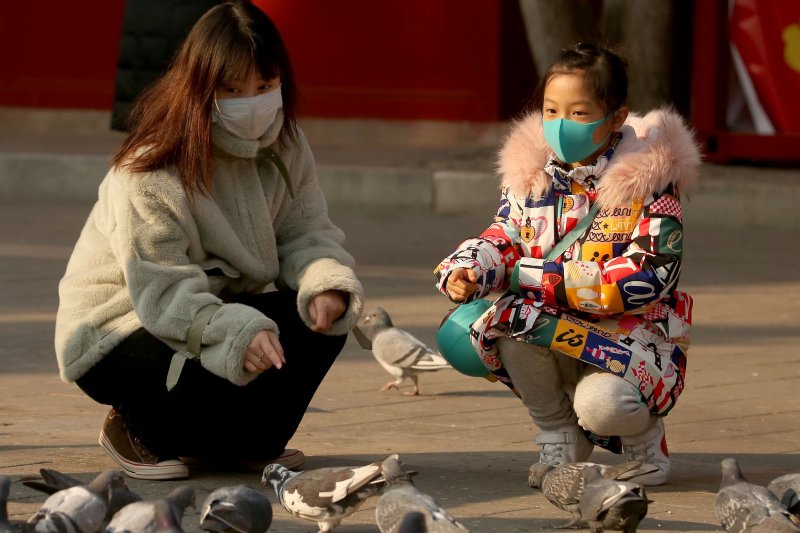Chinese wear protective respiratory masks in Beijing, China, on Wednesday. Photo by Stephen Shaver/UPI |
License Photo
Jan. 23 (UPI) -- World Health Organization officials announced Thursday that they will not be declaring a public health emergency of international concern, or PHEIC, in response to the coronavirus outbreak in China, despite the fact that isolated cases have surfaced in several other countries.
"Do not take this decision today as a sign that WHO doesn't take this outbreak seriously," Tedros Adhanom, the organization's Director-General, said. "Nothing could be further from the truth."
Adhanom said the international organization remains concerned about the outbreak in China, and understands that some in the region of the country that has been particularly affected already consider it a health emergency. However, it still doesn't meet the criteria for an "international" emergency -- although that could change as soon as Friday, as more data comes in.
Officials noted the outbreak is "still evolving," and they don't yet know the source of the virus or how it spreads.
The WHO made the decision following an all-day meeting of its Emergency Committee. According to the committee's chair, Didier Houssin, members were "split 50/50" on whether or not to declare a PHEIC, but collectively the group opted for a cautious approach -- for now.
"We are committed to ending the outbreak as soon as possible," Adhanom said, adding that he could reconvene the emergency committee within days to reconsider declaring PHEIC, if the outbreak continues to worsen.
According to the committee, to date, all of the cases in areas outside China, where the virus was first identified, occurred in people who had traveled to the Asian nation. There have been no reports of human-to-human transmission outside of China, and all of the cases of human-to-human transmission there have involved family members and health workers caring for people already sickened with the virus, the added.
They also noted that Chinese officials have taken important steps to contain the virus. Adhanom lauded the country's surveillance system for lower respiratory tract infections, which first identified the coronavirus outbreak and enabled healthy authorities in the affected region to quickly implement containment measures. However, he urged officials in the country to continue sharing data with the WHO and other nations, particularly if the outbreak spread.
Chinese officials on Thursday effectively placed three cities -- including Wuhan, where the outbreak began -- on lockdown. While the WHO didn't feel "travel and trade restrictions" were necessary at this time, they did strongly recommend exit screenings of travelers at international airports. The WHO has also provided health authorities in its member nations with guidance as to surveillance for coronavirus, and the organization is allocating resources to fund accelerated research and development into diagnostic tests, drug treatments and vaccines against the disease.
Huanggang, 30 miles east of Wuhan, is home to 7 million people and Ezhou 1 million.
To date, 584 cases of coronavirus have been reported to WHO, with 575 of them in China. All 17 deaths linked with the disease have been in China, and all of them occurred in people with compromised immune systems due to underlying health conditions, including diabetes, heart disease and high blood pressure.
Vietnam and Singapore also reported their first cases Thursday.
Earlier, Chinese scientists said the coronavirus may have originated with a snake. The researchers published the findings in the Journal of Medical Virology, which says the virus most likely transferred to humans from the snake -- a many-banded krait or Chinese cobra.
Scientists conducted a sequence analysis of the virus isolated from a patient and compared it to other animals, determining the two snakes -- which are common in southeastern China -- are most likely the source.















